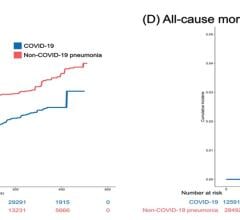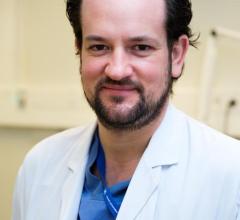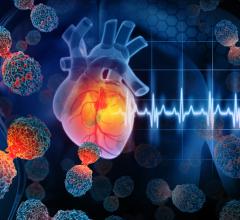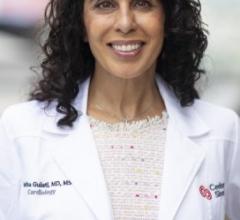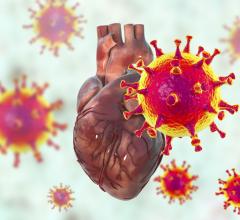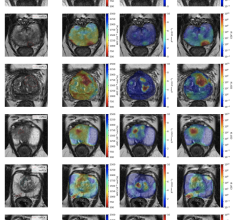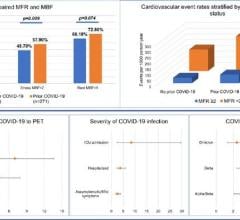
A nurse checking an ECMO system being used to support a critically ill COVID-19 patient at Banner Health in Phoenix. ECMO can offer both hemodynamic support and oxygenation for COVID patients who otherwise cannot get enough pulmonary support from ventilators, or are in danger of organ failure.
May 4, 2021 – A new study, presented today at the 2021 American Association for Thoracic Surgery (AATS) 101st annual meeting, found that severely ill COVID-19 (SARS-CoV-2) patients treated with extracorporeal membrane oxygenation (ECMO) did not suffer worse long-term outcomes than other mechanically-ventilated patients. The multidisciplinary team included cardio thoracic surgeons, critical care doctors, medical staff at long-term care facilities, physical therapists and other specialists, and followed patients at five academic centers: University of Colorado; University of Virginia; University of Kentucky; Johns Hopkins University; and Vanderbilt University.
Survivors of critical illness are at high risk for long-term physical, psychological, and cognitive deficits. ECMO shows promising survival benefit for select patients with COVID-19. However, its impact on long-term recovery was unknown. The study measured physical, psychological, and cognitive deficits in in 46 patients who were cannulated for ECMO compared to a control group of 262 mechanically ventilated patients who did not receive ECMO.
The multi-disciplinary team conducted a retrospective analysis of mechanically ventilated patients with COVID-19 admitted between March and May 2020. Data were available for all mechanically ventilated patients from three sites, while all five sites provided ECMO patient data. Survivors had access to a multi-disciplinary post-intensive care unit recovery clinic for long-term care. Physical, psychological, and cognitive deficits were measured using validated instruments during follow up. Patient characteristics and long-term outcomes were compared based on ECMO status.
The study found no significant difference in survival at discharge (69.6 percent ECMO vs. 69.9 percent non-ECMO.) Of the 215 survivors across both groups, 93.9 percent were residing at home, 16.1 percent had returned to work or usual activity and 26.2 percent were still using supplemental oxygen; these rates did not differ significantly based on ECMO status. Rates of physical, psychological and cognitive deficits did not differ significantly.
“The initial guidance for ECMO in COVID was helpful and saved a lot of lives, and not to their detriment, which is very encouraging,” explained Jessica Rove, M.D., assistant professor, cardiothoracic surgery at University of Colorado Anschutz Medical Campus, and section chief, cardiac surgery, Rocky Mountain Regional VA Medical Center. “This multidisciplinary collaboration is committed to examining long-term outcomes beyond survival, and early results look promising. This may help to further refine who should receive ECMO and may increase the rate of positive outcomes.”
Further research will continue to follow patients and measure outcomes over the longer term.
“It is exciting that we now have the long term outcomes of these patients and that they are so promising," explained Lauren Taylor, M.D., a fellow at University of Colorado Anschutz Medical Campus. "Further study of these patients over the long term can help to further refine who we are canulating for ECMO, leading to better outcomes for all.”
The study "Long-term Recovery of COVID-19 Survivors is Not Negatively Impacted by ECMO: A Multicenter Study from the ORACLE Group," included the following authors: Lauren J Taylor, Chintan Ramani, Shoaib Fakhri, Kirby P Mayer, Eric W Etchill, Matthew F Mart, Sarah E Jolley, Alexandra Kadl, Skyler Peterson, Ashley A Montgomery-Yates, Ann M Parker, Carla Sevin, Kathryn Colborn, Nicholas Teman, Jordan Hoffman, Kyle Enfield, Karsten Bartels, Bo Soo Kim, Sung-Min Cho, Joseph Hippensteel, Glenn J.R. Whitman, Joseph B Zwischenberger, Jessica Y Rove.
The AATS is the premiere association for cardiothoracic surgeons in the world and works to continually enhance the ability of cardiothoracic surgeons to provide the highest quality of patient care. It is more than 1,500 members have a proven record of distinction within the specialty and have made significant contributions to the care and treatment of cardiothoracic disease.
For more information: www.aats.org
Related COVID-19 ECMO Support Content:
COVID Mother Reunited With Caregivers After Saving Her Live With ECMO
Abiomed Adds ECMO Cardiopulmonary Support to its Portfolio
FDA Allows Emergency Use of Impella for COVID-19 Patients on ECMO
VIDEO: ECMO Support Effective in Sickest COVID-19 Patients — Interview with Ryan Barbaro, M.D.,
FDA Approves ECMO to Treat COVID-19 Patients
VIDEO: COVID Survivor on ECMO in Hospital 152 Days Reunited With Clinicians Who Saved Her
ECMO Used to Treat Adult Respiratory Distress Syndrome Case
FDA Allows Emergency Use of Impella for COVID-19 Patients on ECMO
The Cardiovascular Impact of COVID-19

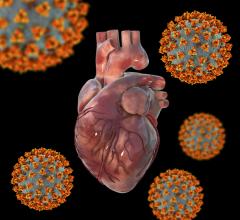
 March 20, 2024
March 20, 2024 

